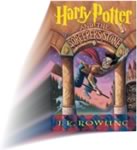 This is a follow up to the writing prompt from January 24: 5 minute stories inspired by Fast Fiction: Creating Fiction in Five Minutes by Roberta Allen.
This is a follow up to the writing prompt from January 24: 5 minute stories inspired by Fast Fiction: Creating Fiction in Five Minutes by Roberta Allen.She says you can write a novel in 5 minute chunks!
Her suggestions are for any story/novel: One you're just beginning, one you've been working on, one you got stuck on.
- Begin: To begin on a brand new story, choose a writing exercise from the 300 she lists in her book (I've put a few from her book below) and just write. Turn off your inner editor. Expect it to be junk. It doesn't have to tie directly into a bigger story. It can be a letter, a bit of dialog, a character sketch, some background. Anything the exercise makes you think of.
When your 5 minutes is up, look back at what you wrote. Don't judge it on grammar or style or word choice. Don't worry about revision. Focus on interest, energy, the feelings that it sparks in you. If on an energy scale of 1-10 it rates 6 or above then there's some idea in there that you want to explore.
If it doesn't interest you, try another exercise and write again for 5 minutes. Keep doing this until you get some idea, some phrase, some potential that captures your attention.
- Expand:Then there are a number of options for either the fresh or already begun story. (There are examples of student writing in her book of each of these that might make it clearer how they actually work in practice.)
- What happens next? - When you have something you like then reset the timer and ask yourself "What happens next?" If at the end of 5 minutes that one feels exciting, then ask the same question and do another 5 minute exercise. She suggests that if you end up with 3 out of 8 exercises that you really like you've probably found something that can carry forward into a novel because you've hit on something that interests you. (Even if you may not be entirely sure what it is!) She says stop before you run out of energy. Set it aside for the next day.
- Strings of exercises - Or you can choose from the 300 exercises she lists in her book. (Choose randomly. Choose something that interests you or doesn't interest you. Choose the same exercise (e.g., the first) from 6 different sets. It doesn't make a difference how you choose.) Then set the timer for 5 minutes and continue where your last exercise left off. Just let the thoughts swirl to see how your subconscious makes connections between the elements and let them flow out. You may not write directly about the idea in the exercise but there will be something sparked by it.
- Energy - Reread what you wrote and underline the part that grabs you, stirs you, moves you interests you, upsets you. Then use that as inspiration for the next 5 minutes. If you want, you can write the essence in the form of a directive like the ones below: "Write about ..." if that helps you. (There may be several ways to reword your sentence or phrase into a directive. Don't agonize trying to find some mythical "right" or "best" way to do it.)
- What happens next? - When you have something you like then reset the timer and ask yourself "What happens next?" If at the end of 5 minutes that one feels exciting, then ask the same question and do another 5 minute exercise. She suggests that if you end up with 3 out of 8 exercises that you really like you've probably found something that can carry forward into a novel because you've hit on something that interests you. (Even if you may not be entirely sure what it is!) She says stop before you run out of energy. Set it aside for the next day.
- Review: For each of these, if you create something that doesn't have a spark that you like, set it aside. Then after you have 6 exercises with energy you like to stop and review what you've written. This isn't the time to edit. Leave them unfinished since it will give you greater freedom to play with and explore what's going on. You don't want to create beautiful stuff yet because you want to preserve the freedom to toss it if you discover a more energy-filled direction for your story to go in. She has questions to ask yourself as you look them over in her book, things like: Are they connected? Are there holes? Is it too slow or fast? Does the point of view work well? Is there a conflict? and so on.
Reviewing after 6 exercises, like the 5 minutes, is just a guideline, of course. You can review after 4 or 8. If you're on a roll when the 5 minute timer goes off, keep going. Find something that works for you.
Write about:
a lie
something that really happened
an animal
an object that has been lost
leaving
a wish
food
a reward or a punishment
water
a misunderstanding
greed
something wide
a crime
a color
death
a dream
something narrow
flying
falling
seeing something beautiful
money
a heavy object
memory
sadness
No comments:
Post a Comment